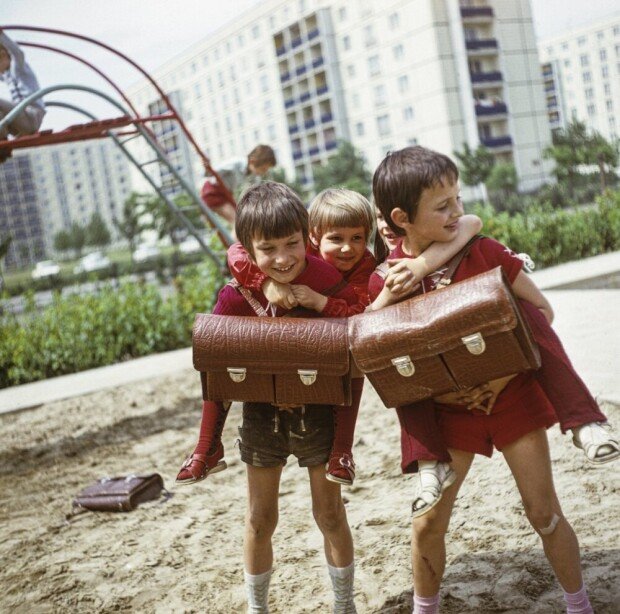Recollections from East Germany
Recollections from East Germany
Posted February. 24, 2024 08:02,
Updated February. 24, 2024 08:02


"The blue jeans my aunt sent me from West Germany symbolized hope. I rarely wore East German clothing," reminisced the woman about her youth spent in East Germany. Despite her upbringing anecdotes, during a 2021 event commemorating German Unification Day, she openly criticized the perception that life in East Germany was insignificant. That year, she selected the song "You Forgot the Color Film" from her youth in East Germany for her farewell ceremony. This woman is none other than Germany's former Chancellor Angela Merkel, who led the unified Germany for an impressive 16 years.
Today's book revisits the era of East Germany, which ceased to exist on October 3, 1990. It presents a multifaceted narrative, intertwining recollections, testimonies, and archival records to vividly depict a society long gone.
East Germany encountered a rocky start upon its establishment in 1949. Many East Germans faced hardships while West Germany and its allies in West Europe received the Marshall Plan aid. Between 1945 and 1953, East Germany was obligated to allocate 60% of its economic production to the Soviet Union as war reparations. This period also saw the sudden exodus of academics and technicians, who were compelled to relocate to the Soviet Union by truck with their families practically overnight.
On June 17, 1953, amid enduring economic hardships and Soviet interference, people took to the streets in protest. The exodus of over three million skilled workers to the West prompted the East German government to enact draconian measures, culminating in the construction of the Berlin Wall in 1961. While harsh from a humanitarian standpoint, it proved effective in stabilizing society.
Despite the formidable competition posed by West Germany, East Germany experienced its own economic progress. The Trabi, a renowned East German car brand, boasted a decade-long waiting list; yet, by 1988, over half of all East German households owned one. Ordinary middle-class families could enjoy holidays in Prague or at northern beaches. However, despite leaving behind the days of scarcity, those permitted to visit their West German families in later years observed much-needed supplies being discarded thoughtlessly in the neighborhoods of their West German families and relatives.
Born in East Germany and later becoming British, the author witnessed her nation reunified at the age of five. Recalling the democratization protests in Berlin the year before reunification, she candidly acknowledges the dark aspects of her homeland. Elections were mere formalities, offering only binary choices, while pervasive surveillance by the Stasi left even high-ranking figures like Walter Ulbricht disillusioned. Despite East Germany's attempts to mirror Western affluence, obtaining even basic commodities like coffee remained a challenge in reality.
The book also highlights some positive aspects of the nation. An impressive 91% of women participated in the workforce, and children received excellent care in high-quality public nursing facilities. Additionally, a much higher proportion of people attended college compared to West Germany, with one-third of those entrants coming from working-class families. The author portrays life in East Germany after the 1960s as uneventful and tranquil. She explains that the higher alcohol consumption among East Germans - twice that of their counterparts in West Germany - was not because their life was unbearable but because they had nothing better to do.
Published in 2023, the book garnered praise in the "old" West, with The New York Times reviewing it as "a tribute to human resilience under brutal conditions - not a credit to the state itself." However, it received mixed reviews in Germany, particularly among those who remember the relics of East German institutions. Ilko-Sascha Kowalczuk, East German historian, criticized the book for downplaying the extent of state-imposed suppression on citizens' daily lives.
Erich Honecker, who succeeded Ulbricht as the leader of East Germany, declared West Germany as foreign territory in 1972 while inspecting the military. Two years later, he ordered removing the expression ‘German people’ from the constitution. Sixteen years later, his nation ceased to exist. This prompts reflection on when South Korea might be able to thoroughly assess North Korea, its historical counterpart.
유윤종 문화전문기자 gustav@donga.com







